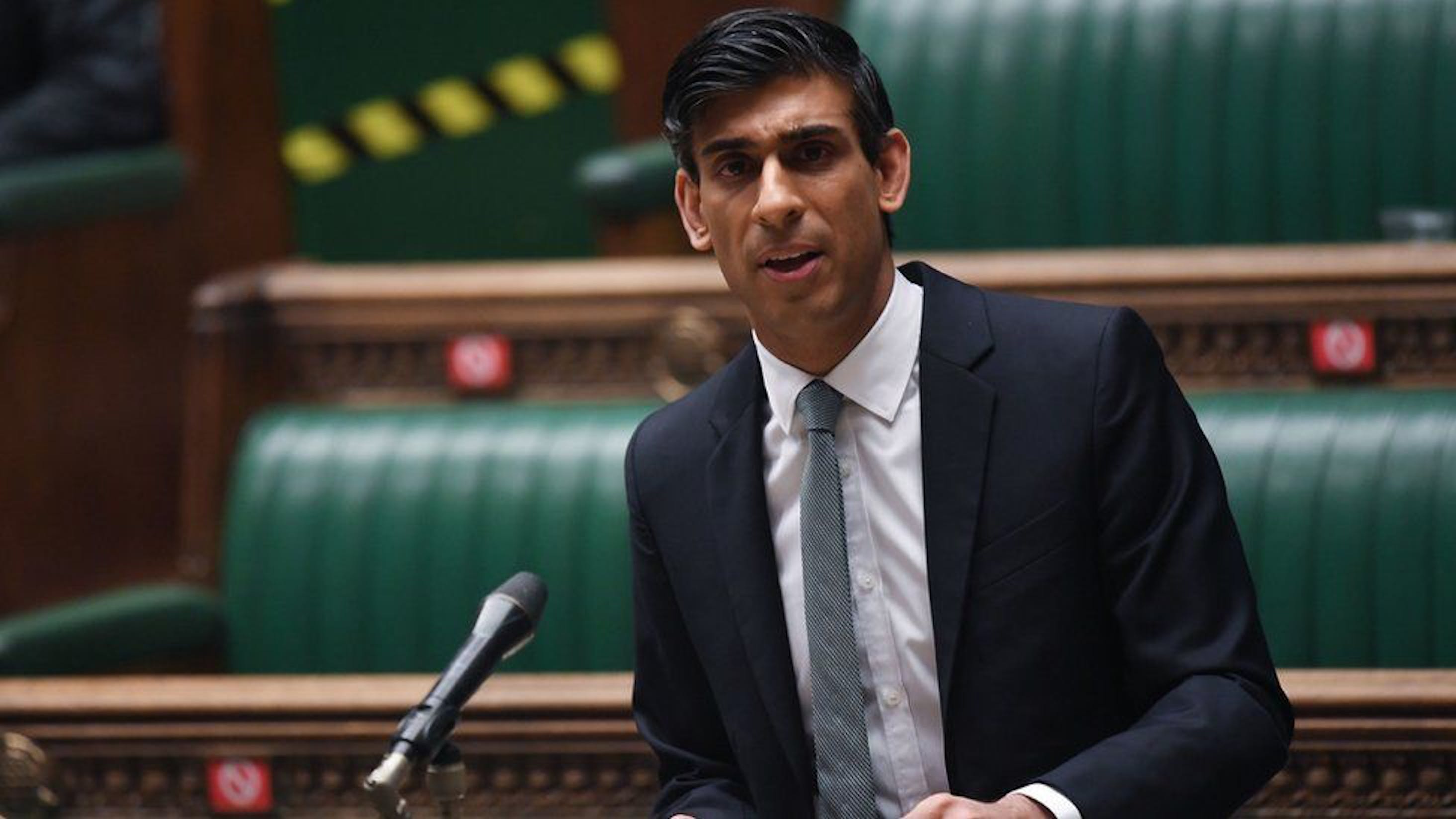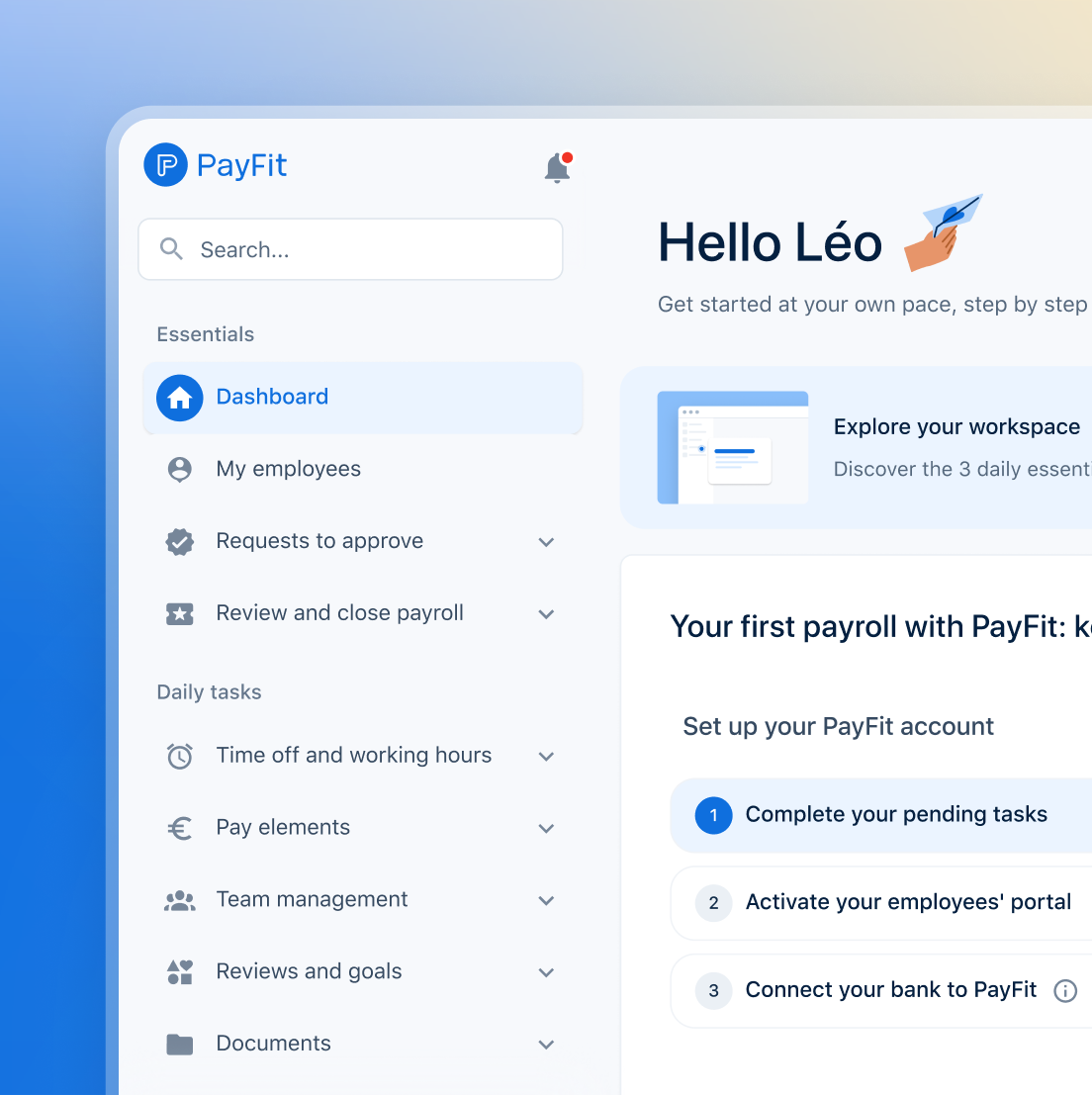✨ Health insurance, now in PayFit - learn more
💷 All the rates & thresholds you need to know for 25/26...right here
✨ The Payroll Journey: Start, Scale & Succeed Globally - learn more
✨ Health insurance, now in PayFit - learn more
💷 All the rates & thresholds you need to know for 25/26...right here
✨ The Payroll Journey: Start, Scale & Succeed Globally - learn more


On 3 March, Chancellor Rishi Sunak revealed the Budget for the 2021/22 tax year.
With the help of PayFit's payroll expert, Nichola Hailes, we've highlighted six of the most important announcements.
The Coronavirus Job Retention Scheme (CJRS), otherwise referred to as furlough, has been extended until the end of September.
Initially introduced in March last year, it was only due to run until the end of June 2020. However, the pandemic's continued presence has meant that it has now been extended on no less than five separate occasions.
Furlough will continue on the current terms until 1 May 2021, at which time employers will be able to furlough any employees who were on a Real Time Information (RTI) submission between 20 March 2020 and 2 March 2021.
From the beginning of July, state contributions will decrease from 80% to 70%. This means that employers will be required to contribute 10% of their employees' wages.
In August, and until the scheme ends in September, state contributions will decrease from 70% to 60% and employer contributions will rise from 10% to 20%.
"The phrase 'shocked but not surprised' has never been more fitting than when it comes to the CJRS's continual changes and extensions.
"For some time now, there have been calls to make the scheme more inclusive for employees who started working for their employer after 30 October 2020. The changes announced in the Budget do that to a certain extent, albeit while still leaving a substantial number of workers ineligible for the scheme."
As is the case every year, living and minimum wage rates will increase across the board in April 2021.
In the 2020/21 tax year, people aged 25 or older were paid a minimum hourly rate of £8.72 an hour in line with the National Living Wage.
This year, the age bracket has changed to include people aged 23 or more and the new hourly rate for the 2021/22 tax year has increased to £8.91.
The amendment to the age range for those entitled to National Living Wage comes from recommendations from the Low Pay Commission Report published in December 2020.
Findings revealed that individuals aged 23-24 in the labour market were treated in much the same way as those aged 25 and above.
"Minimum wage increases year on year with inflation, but the changes being implemented from April 2021 represent a much more concerted effort towards reducing low pay.
"The most significant of the changes has been the age brackets moving for the first time since 2015. This means that more workers will now access the National Living Wage."
To offset the country's rising debt, corporation tax on company profits is set to rise from 19% to 25% in April 2023.
While this increase may concern a lot of employers, smaller businesses will be protected from the increase.
The current 19% rate will remain in place for firms with profits of £50,000 or less. There will be a gradual increase above this amount meaning that only businesses with profits of £250,000 or greater will be taxed at 25%. This only accounts for roughly 10% of businesses.
"Corporation tax hasn't increased since 2016, so this increase was always likely to have been met with some resistance.
"While we all know and understand that measures have to be introduced to help reduce debt, a 33% increase is certainly not insignificant.
"However, it is important to highlight that smaller businesses, and businesses that remain not as profitable, will not be subject to the full increase. It is estimated that around 1.4 million businesses will remain completely unaffected by the changes."
Personal allowance – the amount someone can earn before they begin paying tax – has been frozen at £12,570 until 2026.
This doesn't necessarily mean that there will be an increase in how much tax an employee pays based on comparable earnings each tax year, but it does mean that the amount of tax-free pay employees will receive will not increase until at least April 2026.
"This is a fairly unprecedented move and a freeze of this length hasn't happened since the early 90s.
"Many people are referring to it as a 'stealth' or 'hidden' tax as employees are not going to get an increase in their non-taxable pay for quite some time.”
The higher tax rate – the rate at which employees move from 20% tax deductions to 40% – will be frozen from 2022 until 2026.
In the 2020/21 tax year, the rate was £37,500 and there will be a slight increase to £37,701 for the start of the 2021/22 tax year.
This freeze impacts all taxpayers in the UK, excluding those in Scotland who have their own separate devolved income tax rates.
"Similar to the freeze introduced for personal allowance, a tax rate frozen for this long has not been witnessed since the 90s.
"Once again, this is very much a hidden tax. Typically, tax rates increase year on year; however, what the freeze means is that people will be taxed at the same rate for a longer period than usual."
Firms that hire apprentices will receive a £3,000 cash incentive.
Previously this was set at £2,000 per apprentice under 25 and £1,500 for those over 25.
However, from 6 April, businesses will be able to receive £3,000 regardless of the apprentice's age.
There will also be a £126m investment towards traineeships.
"With so many people losing their jobs over the last year, many businesses are being encouraged to offer apprenticeships or training programmes.
"The Kickstart Scheme was launched in September last year, and although separate to what has been announced in the Budget, the idea is to incentivise employers to offer more roles moving forward."
PayFit provides best-in-class payroll software that helps businesses of all sizes automate their payroll and HR processes.
Interested in finding out how we can help you save time with payroll? Why not book a demo with one of our product experts today?


Learn how to register for Payrolling Benefits in Kind (PBiK) & simplify HMRC reporting. Discover 2025/26 updates & prepare for mandatory payrolling in 2027.

We explore the proposal for a £1,600 monthly universal basic income (UBI) trial in England, considering all the pros, cons and payroll implications.

If you pay Class 1 National Insurance, you can qualify for what’s called the Employment Allowance, and a lower Employer NI bill. Find out how here.

The 2024 Autumn Budget has landed. What does the new Labour government have in store for businesses and their employees? We recap the top announcements made.

Read our guide to answer the question ‘what is small employers’ relief’, to find out how you can qualify as a business, and how much you can claim.

In this post, we’ll look at TUPE (Transfer of Undertakings Protection of Employment Rights), how it works and what employers need to know.

See what's new in PayFit
New features to save you time and give you back control. Watch now to see what's possible